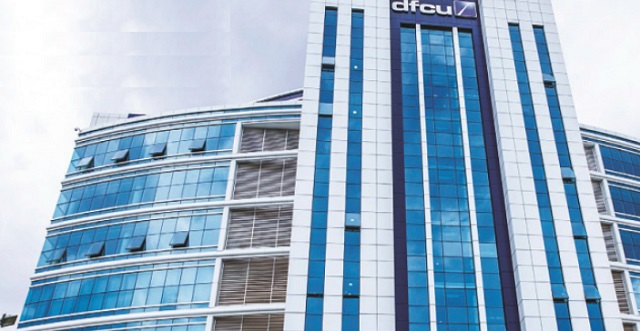
BoU raised policy rate for a third straight time in a row signaling boost to interest rates
| THE INDEPENDENT | Dfcu and DTB have recorded a surprise profit for the first six months of the year but the uncertainty remains ahead due to the prevailing tough economic times.
Dfcu bank saw profit after tax double to Shs18.7billion as DTB recorded a 30% growth to Shs20.3bilion driven by an increase in interest income, fees and commission, and foreign exchange business.
On the other hand, the country’s largest commercial bank, Stanbic Bank saw its net profit increase by 4.6% from Shs154.85billion to Shs162billion during the same period.
Dfcu’s earnings from loans and advances increased by Shs4billion to Shs136billion while net foreign exchange and other incomes increased by Shs4bn to Shs14bn during the period under review.
Meanwhile, DTB’s interest income from loans and advances increased from Shs81.3billion to Shs88.3billion as fees and commission income increased from Shs10.4billion to Shs11.3billion.
The revenue streams, however, appear to be different from the previous years when most of the lenders’ revenue came from government securities.
Tough economic environment
This development comes at the time the Bank of Uganda has raised the Central Bank Rate for the third time in a row, since June to 9%, signaling to commercial banks to raise interest rates but also be cautious while extending credit to their customers.
Deputy Governor at Bank of Uganda Michael Atingi-Ego said last month that “inflationary pressures are still with us and there is a need to do everything possible to bring inflation back to the target of 5%.”
Going forward, he said the MPC considers that the monetary policy stance will have to be tightened even further if inflationary pressures persist to ensure that inflation reverts to its medium-term target of 5%.
Annual core inflation, which excludes food and energy, exceeded the central bank’s 5% medium-term target for a third successive month in July, accelerating to 6.3% from 5.5% in June. Headline price growth quickened to 7.9% from 6.8%. Inflation forecasts for this year remain in the 7% and 7.4% range, Atingi-Ego said.
Supply shortages and a slide in the shilling spurred by foreign investors exiting risky assets around the globe has fanned inflation. The shilling has depreciated about 6% against the US dollar this year.
The MPC sees economic growth at 2.5% to 3% this year, rising to 5% and 6% in 2023. That compares with a previous estimate for expansion of 4.5% to 5% in 2022.
“Overall, economic growth prospects have been dimmed further with increasing risks of a global recession, and weaker consumer and business sentiment as high inflation and commodity prices continue to erode households and business incomes and financial conditions tighten,” Atingi-Ego said.
For now, it remains to be seen how the banking sector will deal with the unpredictable economic conditions to boost profitability in the remaining half of this year.
****
 The Independent Uganda: You get the Truth we Pay the Price
The Independent Uganda: You get the Truth we Pay the Price



